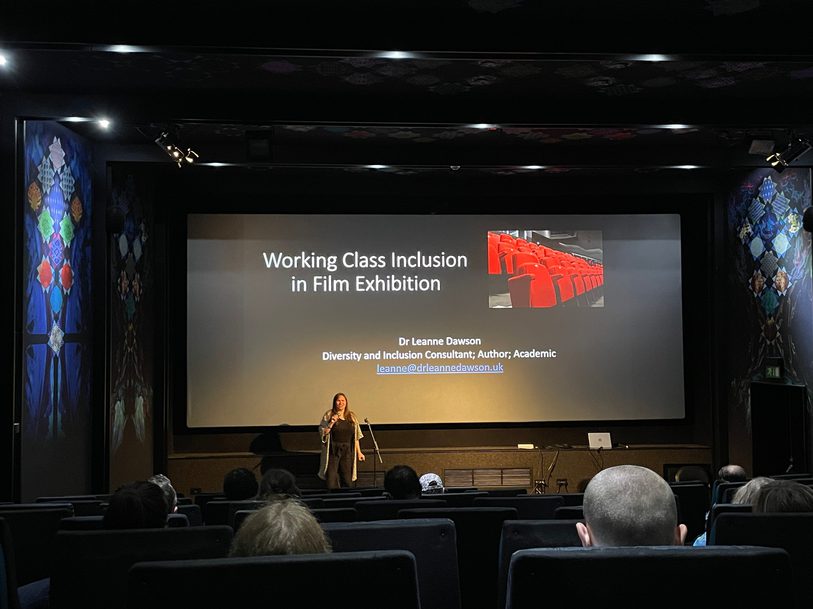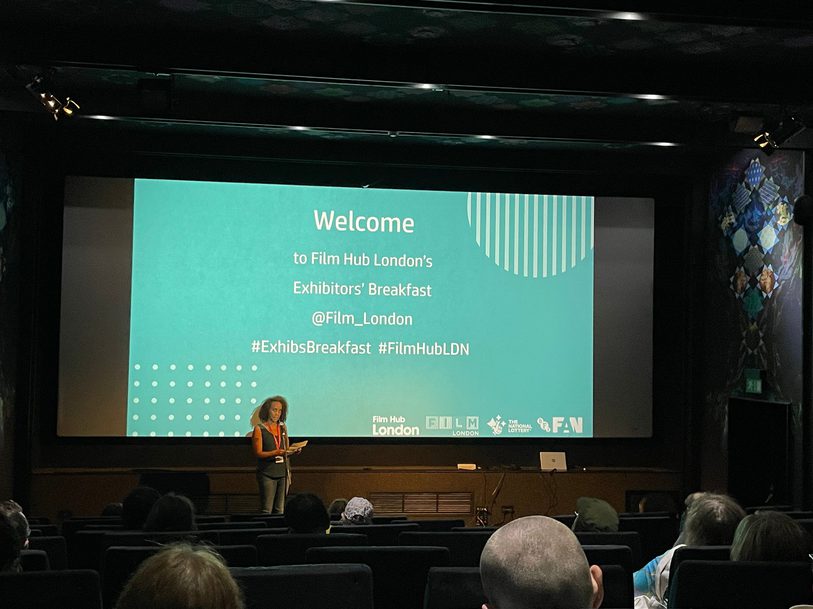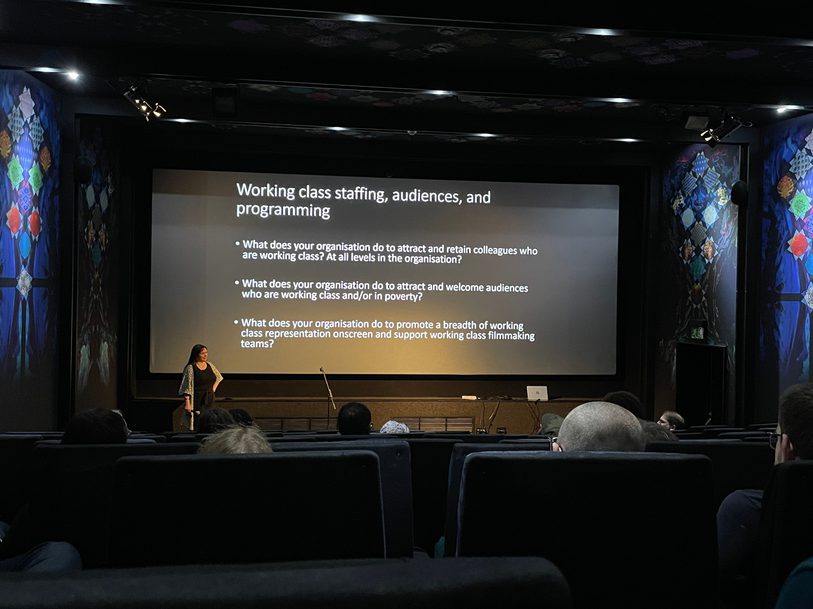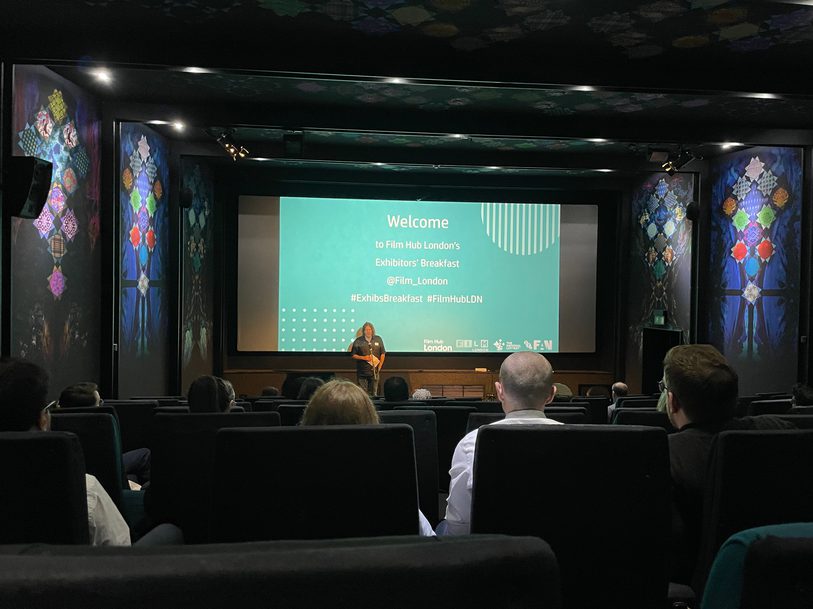News Story

The latest Film Hub London Exhibitors’ Breakfast took place last Tuesday, at Rich Mix in East London. The breakfast was a great opportunity to network and hear about working-class inclusion in the film industry.
The Exhibitor’s Breakfast focused on the vital issue of working-class inclusion in the film industry. Organized by passionate advocates for diversity and representation, this breakfast aimed to shed light on the challenges faced by individuals from working-class backgrounds and explore strategies to bridge the gap in an industry historically dominated by privilege.
The guest speakers featured diverse backgrounds who had firsthand experience with the impact of class disparities within the industry.
The event commenced with an introduction by Rich Mix's Negede Assefa, highlighting the significance of exploring and championing working-class representation in a predominantly elitist industry. Negede Assefa shared a bit of the mission by emphasizing how the venue is proud to be a space to create, enjoy and share culture.
“Every pound we make goes straight to supporting the work we do with local communities and charities” Assefa also shared with the audience their goals to host festivals and continue to grow in their work.

This was followed by Dr. Leanne Dawson who shared her thoughts and knowledge on working-class inclusion. She highlighted the significance of diversity on screen and behind the scenes, emphasizing the need to broaden representation in all facets of the film industry. She noted that genuine inclusion goes beyond merely ticking boxes on a checklist; it demands a profound understanding of how working-class individuals feel and experience the industry.
One of the issues brought to the forefront was the perceived exclusion of working-class people from independent cinemas. Dr. Dawson acknowledged that this perception persists, hindering many from feeling welcome in such spaces. Overcoming this challenge requires a collective effort to make cinemas more inclusive and accessible to all, irrespective of their background.

The concept of equality within the film industry was also touched on. Dr. Dawson argued that offering everyone the same opportunities is not enough if some individuals cannot access those opportunities due to systemic barriers. Recognizing that individuals start from diverse starting points in life, the industry must actively address these disparities to level the playing field. “Equality isn’t really that equal. Everyone might have the same opportunity, but what use is that if they can’t access that opportunity” says Dr. Dawson. “The playing field never was equal as we all started from different points in life.”
Accessibility evolved as a critical component of inclusion, beyond class and including criteria such as age, location, and internet access. Dr. Dawson pointed out that assuming digital platforms as the universally accessible version can lead to further marginalization. Ensuring everyone has equal access to information, resources, and opportunities must become a priority.
